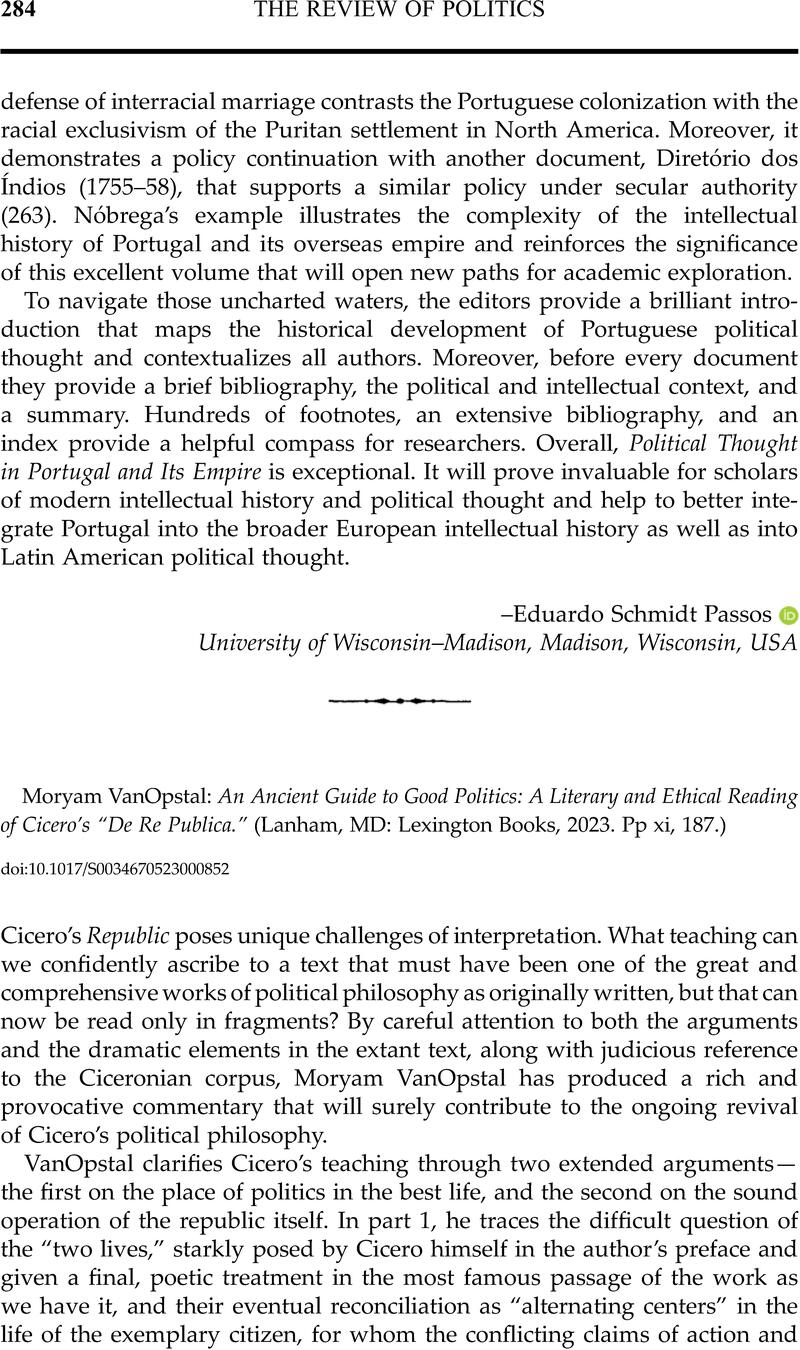No CrossRef data available.
Article contents
Moryam VanOpstal: An Ancient Guide to Good Politics: A Literary and Ethical Reading of Cicero's “De Re Publica.” (Lanham, MD: Lexington Books, 2023. Pp xi, 187.)
Review products
Moryam VanOpstal: An Ancient Guide to Good Politics: A Literary and Ethical Reading of Cicero's “De Re Publica.” (Lanham, MD: Lexington Books, 2023. Pp xi, 187.)
Published online by Cambridge University Press: 08 January 2024
Abstract
An abstract is not available for this content so a preview has been provided. Please use the Get access link above for information on how to access this content.

- Type
- Book Review
- Information
- Copyright
- Copyright © The Author(s), 2024. Published by Cambridge University Press on behalf of University of Notre Dame


